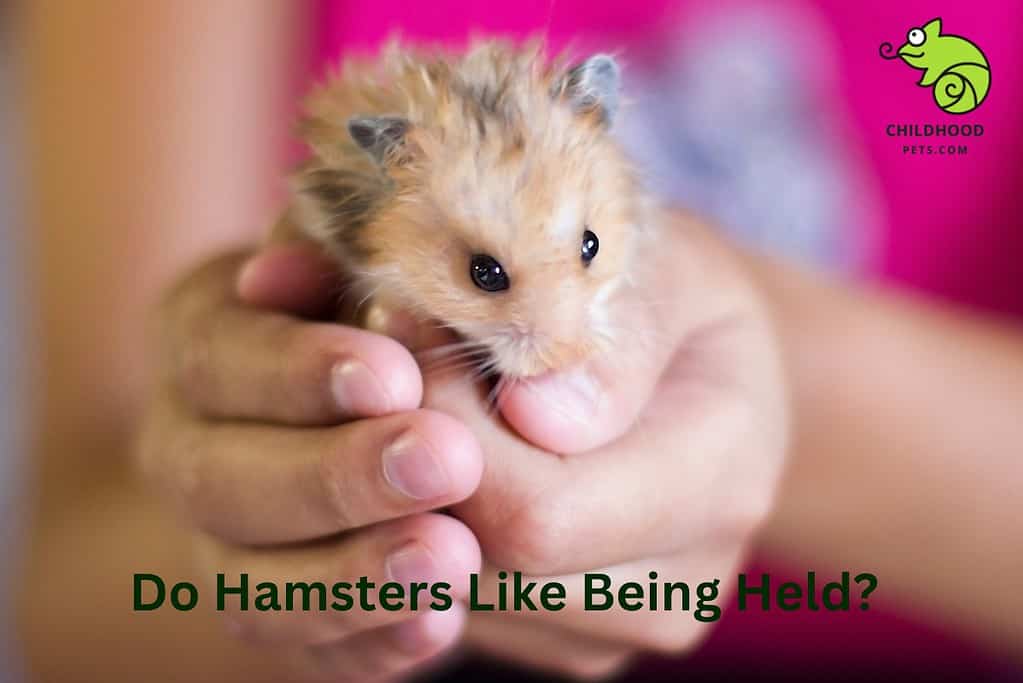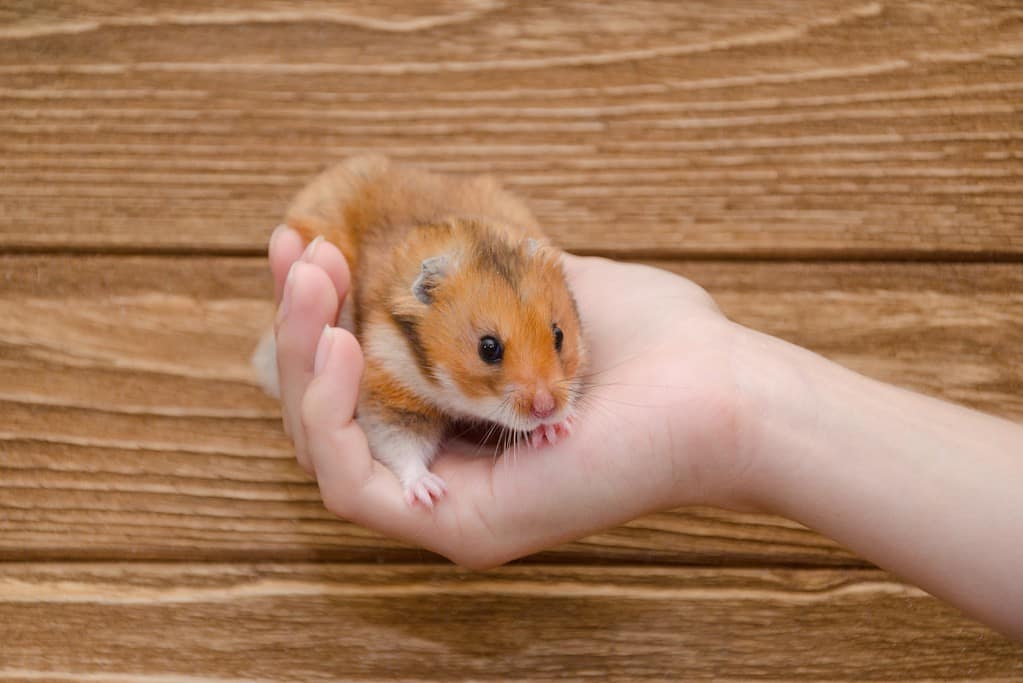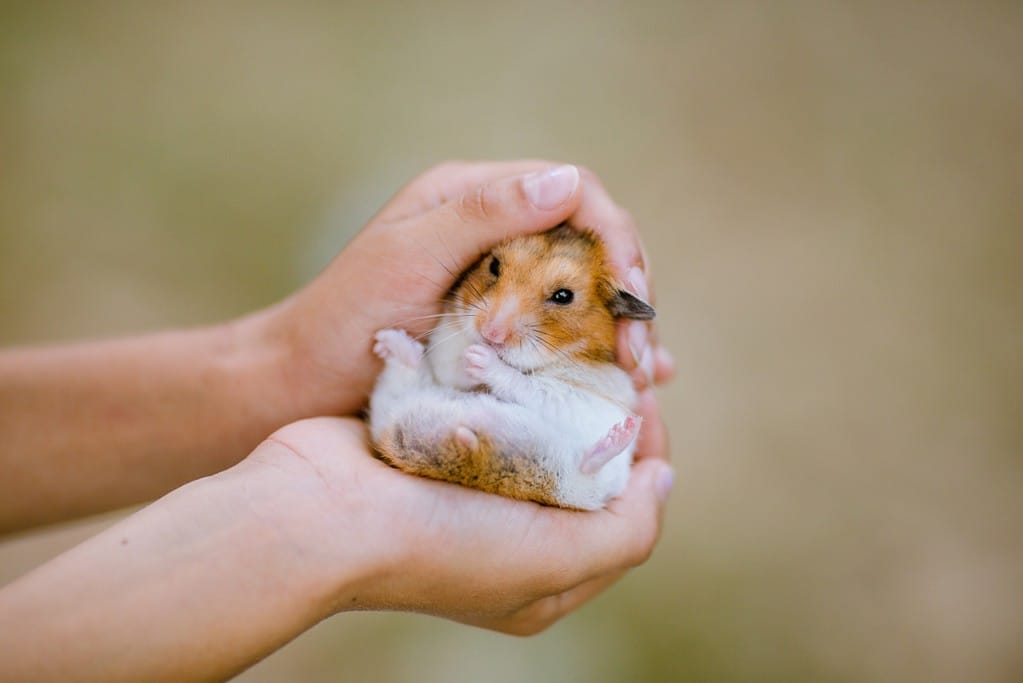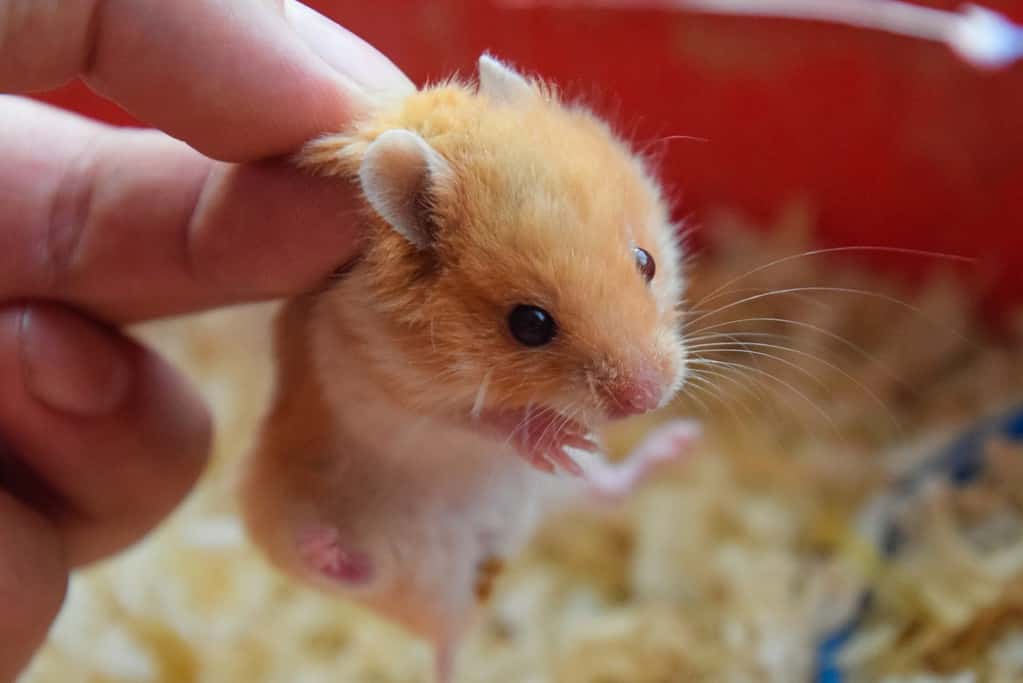
Hamsters are curious, social creatures that can make excellent companions, but they also have their own needs and preferences regarding human interaction. Understanding the signs of your hamster’s contentment or displeasure is crucial in providing the right environment. So, do hamsters like being held?
As a whole, hamsters do not typically enjoy being held. Instead, they prefer to explore their environment and interact with the people around them. It is essential to build trust with your hamster before attempting to hold them by providing consistent handling and lots of treats!
This article will cover the signs that show the hamster is enjoying being held. We’ll also discuss the benefits, risks, and precautions of holding a hamster. So, without further ado, let’s get started!
Do Hamsters Like Being Held?
Hamsters generally prefer to avoid being held and can become stressed if forced to do so. Let them explore their surroundings in your hands or on a flat surface – but never force interaction. Ensure they feel safe and secure around you. If they resist, respect their wishes and let them move at their own pace.
Keep in mind that hamsters are naturally curious and may take some time to adjust to their surroundings. With patience and understanding, you can help your hamster get used to commands with ease.
Is It Safe To Pick Up a Hamster and Hold It?
Yes, it is safe to pick up a hamster and hold it, but there are a few things you should keep in mind.
- First, make sure you have washed your hands before handling the hamster. Unfamiliar smells can easily stress out hamsters, so it’s essential to only smell their scent on your hands.
- Another vital thing to remember is that you should never squeeze your hamster too tightly or drop them. Hamsters have delicate bodies, so handling them gently and carefully is essential.
- Ensure you are always aware of your hamster’s body language, as they may become agitated if not handled correctly. If your hamster appears uncomfortable or stressed, it’s best to put them back in its cage and give them time to relax.
You can safely pick up and hold your hamster with the proper care.
What Signs Indicate That a Hamster Is Enjoying Being Held?

When a hamster enjoys being held, they often display signs such as an increased willingness to explore their surroundings, licking or grooming themselves, chirping and making gentle sounds, and even seeming content to curl up in the palm of your hand for a snooze.
Additionally, some hamsters may start to make “scrabbling” sounds which indicates that they are content and happy. They will also be more relaxed, display less fear or anxiety, and may even start to nibble at treats offered by their person.
It is important to remember that all hamsters have individual preferences and are different from one another, so it’s best to pay attention to your hamster’s body language to determine if they enjoy being held by you.
How Long Can a Hamster Typically Be Safely Held?
Hamsters can typically be safely held for up to 20 minutes. This is because hamsters are easily startled and may become stressed if held for too long. Having your hamster for shorter periods is best to allow them to explore its environment without becoming overwhelmed.
If you keep your hamster for an extended period, giving them a break every 20 minutes is essential to reduce their stress levels and ensure they remain healthy and happy. If you want to increase your bonding time with your pet, activities such as providing them with exercise toys or hand-feeding treats are better than picking up and holding your pet.
Furthermore, be aware that hamsters may become stressed or overwhelmed if you handle them too long, so give your pet plenty of time for rest.
Does the Hamster’s Age Affect Whether They Like To Be Held?

Yes, the hamster’s age can affect whether they like to be held. Younger hamsters are usually more comfortable with being held than older ones, as they haven’t yet developed a fear of humans. However, even young hamsters may not enjoy the experience, which should always be handled gently and carefully.
Older hamsters are less likely to want to be held due to their natural wariness toward humans. It is also essential to note that some hamsters may never become comfortable with being handled, no matter their age. These hamsters should be respected and given their space.
How Should a Person Hold a Hamster Safely and Comfortably?
When handling a hamster, it is essential to hold them in the palm of your hand. Make sure that you support their bottom and back with your fingers so that they feel secure.
If needed, gently place one arm across their chest for extra security. It would help if you always were gentle when transferring a hamster from one location to another, as sudden movements can frighten them and lead to injury.
Knowing your hamster’s size is vital, as they can quickly become squished if you squeeze too hard. Additionally, ensure that your hands are free of any lotion or perfume which could harm your hamster.
What Kind of Environment Do Hamsters Need To Feel Comfortable in When Being Held?
Hamsters need to feel secure when being held, so providing a warm, safe, and quiet environment is essential. To create the best experience for your hamster, ensure the area is free from loud noises, bright lights, or sudden movements that may startle them. Additionally, ensure that the room has an adequate temperature – ideally between 65-75 degrees Fahrenheit – for your hamster to feel comfortable.
You should also ensure the area is secure, so provide them with an enclosed space where they cannot escape. Finally, ensure that you handle your hamster gently and calmly, as sudden movements or rough handling can cause them to become scared or agitated. With the right environment, your hamster will feel safe and secure when being held.
Are There Any Risks Associated With Holding a Hamster Too Much?
Yes, there are risks associated with holding a hamster too much. Hamsters are easily stressed and may become agitated if handled too often or for too long. This can lead to an increase in the hamster’s stress hormones which can cause them to become ill or even die.
Additionally, handling your hamster too much can encourage aggressive behavior, as hamsters can become territorial if they feel like their space is being occupied. It’s essential to limit the amount of time you handle your hamster and ensure it always feels safe and secure.
You should always wash your hands thoroughly before and after handling your hamster to avoid passing on bacteria or viruses. Give your hamster plenty of space and time to rest and relax to stay healthy and happy.
What Are the Signs That a Hamster Is Feeling Uncomfortable While Being Held?
Signs that a hamster feels uncomfortable while being held include:
- Excessive squirming.
- Trying to jump out of your arms.
- Biting or scratching.
- Hiding their head in your palm.
These behaviors may indicate the hamster’s insecurity and want to be put down. If you observe any of these signs, it’s best to put the hamster back in its cage or enclosure so that it can feel safer. If your hamster has an illness or injury, you should avoid picking up and holding them as this could further aggravate their condition.
When handling a hamster, being gentle and using two hands to provide extra support is essential. Hamsters can be easily injured if dropped or handled too roughly.
By following these guidelines, you’ll ensure that your hamster always feels comfortable and secure while being held.
Are There Any Special Precautions To Be Taken When Holding a Hamster?

When it comes to handling your hamster, be sure to take care.
- Wash your hands always before handling.
- Avoid sudden movements or shocks like squeezing them tightly or dropping them from a height.
- When taking your hamster out of its cage, make sure you supervise them closely to ensure they don’t escape or get into trouble.
- Extreme temperatures can be dangerous for small animals like hamsters, so make sure any environment they are placed in is comfortable and safe.
- Ensure their cage is secure and that they have access to fresh food and water at all times.
With these simple precautions in mind, you can help ensure your hamster stays happy, healthy, and safe.
Final Thoughts
Handling a hamster requires gentleness and patience. As delicate creatures, they can become easily startled, so take your time and keep interactions limited to when the hamster is comfortable. Furthermore, ensure your pet has plenty of areas for exploration and exercise for their wellbeing. Respect their boundaries and be considerate in how you interact with them. With these principles in mind, you’ll be ready to begin the exciting journey of bonding with your hamster.
Do you have any experience with handling your hamster? How did it go? We’d love to hear about your experiences in the comments below!
